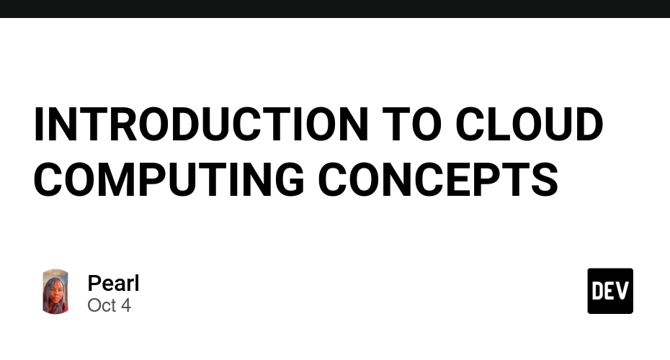Dev
1M
172

Image Credit: Dev
INTRODUCTION TO CLOUD COMPUTING CONCEPTS
- Cloud Computing lets you store, manage and run things like files and programs on servers accessed over the internet.
- Cloud computing is cost-effective, scalable, and supports collaboration and remote work, making it ideal for businesses.
- A data center stores and processes data in cloud computing models. The cloud service provider runs these data centers.
- On-premise data centers are expensive and require hardware management, while cloud data centers are maintained by providers.
- Cloud service models deliver computing resources and services over the internet and the main cloud service models are Infrastructure as a Service, Platform as a Service and Software as a Service.
- Cloud deployment models include Public Cloud, Private Cloud and Hybrid Cloud.
- Cloud governance is important for data protection, tracking performance, compliance with laws, and regulatory requirements.
- RTO and RPO are key for recovery planning, while Scalability and Elasticity ensure that systems can grow and adjust based on demand.
- Cloud Security measures includes using strong passwords, encryption, backup and recovery options, limiting access, and providing regular training to employees.
- Emerging trends in Cloud Computing include AI and ML Integration and Multi-Cloud Strategies for better performance and reliability.
Read Full Article
10 Likes
For uninterrupted reading, download the app